lecture8
- 格式:doc
- 大小:49.50 KB
- 文档页数:4
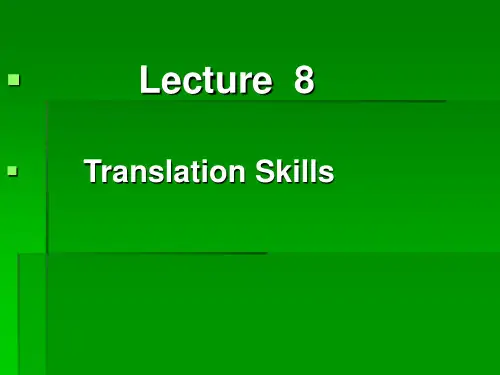
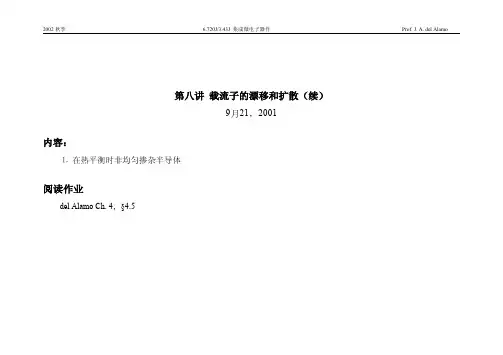
第八讲 载流子的漂移和扩散(续)9月21,2001内容:⒈ 在热平衡时非均匀掺杂半导体阅读作业del Alamo Ch. 4,§4.5主要问题●热平衡时,在一个半导体中有可能存在一个电场吗?●对电子和空穴电流那意味什么?●在迁移率和扩散系数间有关系吗?●给定一个非均匀掺杂分布,如何计算平衡时载流子浓度?●在什么情况做那平衡多数载流子浓度遵循那掺杂把在一个非均匀掺杂半导体弄平整?⒈ 在热平衡时非均匀掺杂半导体热平衡时,在一个半导体中有可能存在一个电场非均匀掺杂分布□ 高斯定律:电荷产生电场:●如果00ρε=●如果00d dx ερ=●有可能0ε而0ρ=在半导体中:如果D D N N +;而A AN N −;□ 在TE 时均匀掺杂的半导体:●远离任何表面电中性。
●因为外面没有施加电场00ε=□ 在TE时非均匀掺杂的半导体(n型):三个可能:●()()0D n x N x =净扩散电流●()0n x 一致的净漂移电流●()0n f x =但()()0D n x N x 不存在净电流的方式□ 目的:理解在TE时非均匀掺杂半导体物理机制● 在TE时电流详细的平衡原理● 爱因斯坦关系● 玻尔兹曼关系● 一般结论● 准中性结论□ 在热平衡时详细的平衡进一步要求:[研究§4.5.2中的例子]□ 爱因斯坦关系µ指一个电场中载流子“自由的”漂移。
D指“自由的”载流子扩散导致的一个浓度梯度。
µ和D之间有关系吗?有,是爱因斯坦关系:µ和D之间的关系只取决于T。
[研究§4.5.2中推导和约束条件]□ 玻尔兹曼关系在TE 时,扩散=漂移在静电学和载流子浓度之间必定存在在TE 时,0e J =:000e e e dn J q n qD dxµε=+那么,0ε和平衡载流子浓度之间的关系:00001(ln )kT dn kT d n q n dx q dxε=−=−按φ表示为:积分得:在两个不同点平衡载流子浓度的比与静电势差别的关系。
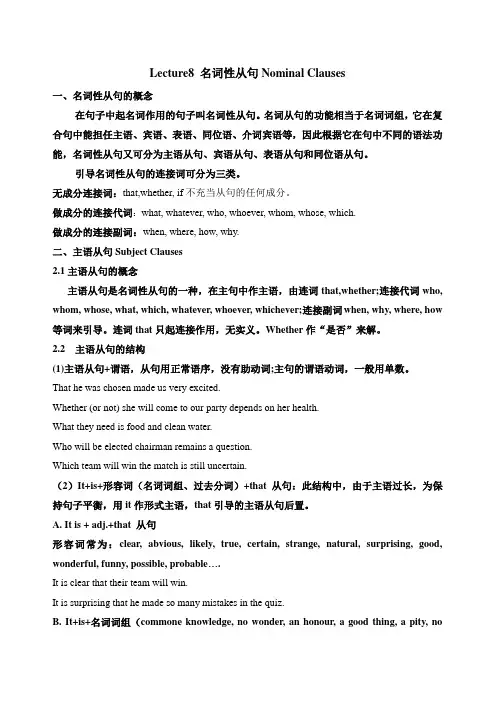
Lecture8 名词性从句Nominal Clauses一、名词性从句的概念在句子中起名词作用的句子叫名词性从句。
名词从句的功能相当于名词词组,它在复合句中能担任主语、宾语、表语、同位语、介词宾语等,因此根据它在句中不同的语法功能,名词性从句又可分为主语从句、宾语从句、表语从句和同位语从句。
引导名词性从句的连接词可分为三类。
无成分连接词:that,whether, if不充当从句的任何成分。
做成分的连接代词:what, whatever, who, whoever, whom, whose, which.做成分的连接副词:when, where, how, why.二、主语从句Subject Clauses2.1主语从句的概念主语从句是名词性从句的一种,在主句中作主语,由连词that,whether;连接代词who, whom, whose, what, which, whatever, whoever, whichever;连接副词when, why, where, how 等词来引导。
连词that只起连接作用,无实义。
Whether作“是否”来解。
2.2主语从句的结构(1)主语从句+谓语,从句用正常语序,没有助动词;主句的谓语动词,一般用单数。
That he was chosen made us very excited.Whether (or not) she will come to our party depends on her health.What they need is food and clean water.Who will be elected chairman remains a question.Which team will win the match is still uncertain.(2)It+is+形容词(名词词组、过去分词)+that从句:此结构中,由于主语过长,为保持句子平衡,用it作形式主语,that引导的主语从句后置。

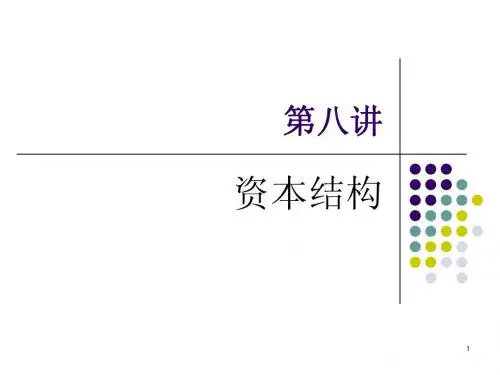
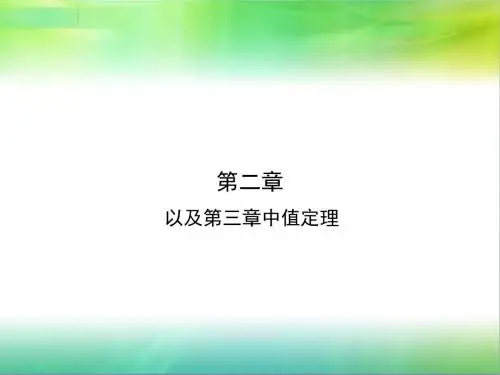
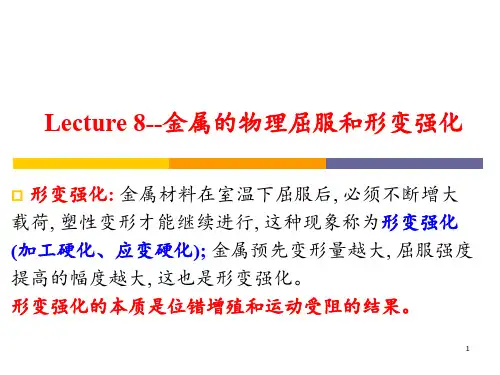
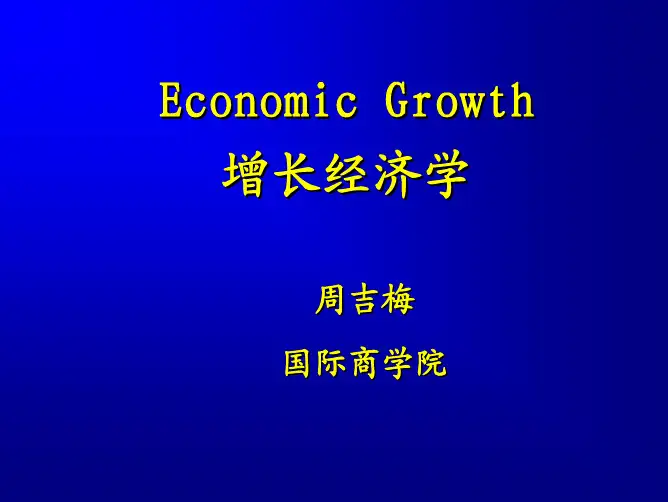
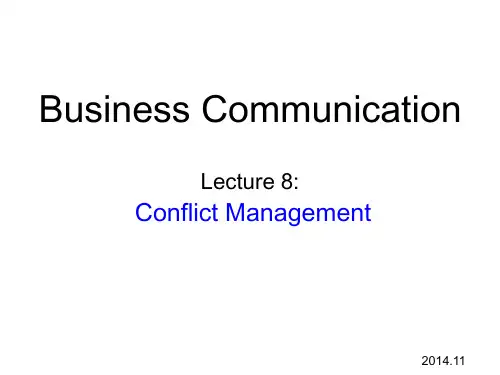
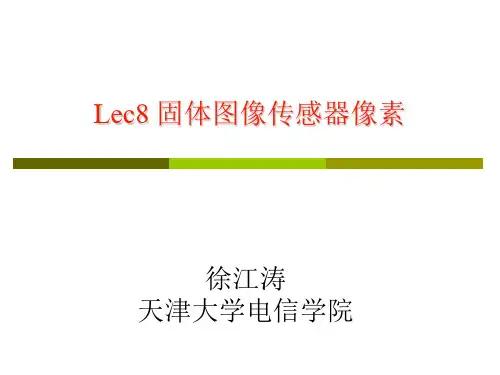

Lecture8:传统中国的司法与诉讼【前言】几个相关的问题1、什么是司法,什么是诉讼?古人的说法:“词讼”、“狱讼”讼——争财,以财货相告;狱——争罪,以罪名相告。
“讼”的两造:入“束矢”于朝,“取其直也”;“狱”的两造:入“钧金”于朝,“取其坚也”。
(《周礼·秋官·大司寇》)2、关注的时间段——为什么是明清?*并非完整和严格意义上的王朝概念“帝制中国晚期”(late imperial China)“长时段”——格局“中时段”——局势“短时段”——事件3、史料从哪里来?(1)正史典籍例:法典、刑法志、职官志、敕令谕旨(2)律学作品例:薛允升《读例存疑》,官箴书(3)司法档案例:巴县档案、淡新档案、南部档案(4)判牍例:《名公书判清明集》、《盟水斋存牍》(5)文学作品例:戏曲、小说、笔记(6)其他例:日记、自传、日用类书、地方志一、传统中国的司法机构传统中国专门的司法机构非常少,“司法机构”约等于官僚机构、行政机构。
几乎所有的行政机构都具有一定的司法职能,都有可能介入到司法事务中。
任何一个官员理论上都能成为法官。
最高审判权名义上掌握在皇帝手中,实际上由皇帝的专门性顾问——司法机构(如刑部)作为咨询机构解决,皇帝做最后的朱批。
司法机构理论上只是皇帝作出最终判决的咨询机构。
但不能小看这些司法机构的功能,大部分案件都由其作出裁决,除了部分过于震惊的案件。
(一)中央司法机构——历朝历代都出现了专门的司法机构,但并不意味着司法权的独立,只是职能的分发,因事务较多,需要专门人员负责处理。
1、西周:司寇(以刑事审判为主)·原先为军官职位,后逐渐演变为司法官职,这是刑起于兵的一个体现,简单来说就是我国古代的法官来源于军官。
2、秦汉:廷尉(廷:平也,治狱贵平)例:汉文帝vs张释之当时官员的选拔仍然看重家世,张释之的家世富足,张释之捐官出仕为骑郎。
汉文帝即位后为了培养自己的势力,提拔张释之任廷尉,严于执法,当皇帝的诏令与法律发生抵触时,仍能执意守法,以执法公正不阿闻名。
8. Suprasegmental Featuresthe phonological properties that occur in the sound units larger that one segment (phoneme), such as word sentence . They may include stress, tone, intonation, pause(juncture), etc.1) Streethe pronunciation of a word or syllable with more force than the surrounding words or syllables.In English we have three kinds of stress:Primary stress (marked with superscript)Secondary stress (marked with subcript)Unstress (unmarked)Stress can be divided into word stress and sentence stress.Word StressGerman, Finnish and Hungarian--- the first syllable of a wordFrench, Turkish and Polish---the last syllable.English'answer a'bove mana'gerial incompre'hensive industrali'zatio nWord stress can distinguish meaning in English:'import n describe the stateim'port v describe the actionpresent [p'reznt] adj being in the place in questionpresent [pri'zent] v give, submit'blackboard black'boardWhite House white houseEnglish teacher English teacherSick nurse 照看病人的护士sick nurse有病的护士Sentence Stressthe kind of stress that falls on certain word or words in a sentence.Sentence stress is not wholly random in English, there are some rules to follow:1)Semantically important words usually have sentence stress.She 'studies from 'morning till 'night.'John has 'gone to the 'school.2) Rhythm may influence the placement of the stress in the sentence.She's 'fifteen years old. She's only fif'teen.He 'went away. John went 'awayc) In certain syntactic structures, some words usually do not receive stress.Has he gone to town this morning?How do you do, Mr Smith?"Yes" he said.“Where are you going?” t he man askedSentence stress also distinguish meaning in language:a) You may 'not go thereYou 'may not go there.b) John has ′plans to write.----John has plans to be written.John has plans to ′write.----John intends to write something.c) Her dress looks 'very nice.Her dress 'looks very nice.d) My friend looked up when he came in.e) A: Bob and Mary were expelled from school.B: Really? Bob …and Mary? You must be kidding.f) 他'又把物理复习了一遍。
(不止一遍)他又把'物理复习了一遍。
(先已经温习了别的功课)g)“我们都三十多岁了”,“都”重读,意思是“全部”;轻读,意思是“已经”。
吃饭吃面他都无所谓。
Noodles or rice doesn‟t make any difference to him.吃饭吃面他都无所谓。
He doesn‟t mind eating noodles or rice.吃饭吃面他都无所谓。
There is no difference to him whether to eat noodles or rice.Tone阴平阳平上声去声轻音ma妈ma麻ma马ma骂ma吗你没有看好那匹ma,让它踩乱一捆ma,挨了你ma一顿ma, 你说是ma?3) Intonation----the variation of the general movement of the pitch of the voice. Or the rise and fall of the voice when speaking. The frequently used types of intonation in English are as follows:1) falling intonation----finality, definiteness, assertion, command, etc.2) rising intonation----non-finality or continuation, implication, request, uncertainty,reservation, encouragement, etc.3) fall-rise intonation----doubt, hesitation, contradiction, concession, impatience, e.ga) A: Do you know John Smith?B: Yes.A: Have you seen Mary?B: No.b)You are a student, aren't you?(fall intnation, ask for confirmation)You are a student, aren't you?(rising intonation, ask for information)It's lovely day, isn't it? (fall intonation)c) Can you spare me a few↗minutes?----Can you give me a few minutes of your time?Can you spare me a few↘minutes?----Will you excuse my absence for a few minutes?d) I thought it would↗rain.(and it has) 我料想会下雨。
(真的下了)I thought it would↘rain.(and it hasn‟t)我以为会下雨。
(结果没有下)e) She doesn‟t speak to-↘ anyone.----She speaks to no one.She do esn‟t speak to ↘↗anyone.----She speaks only to some people.You can‟t give a baby -↘↗any food.f) It isn't bad.g) I beg your pardon.h) Please telegraph me if I am to ↗come 如果要我来请拍电报告诉我。
Please telegraph me if I am to↘come. 请拍电报告诉我是否要我来。
k) Take the ↗pills and you’ll feel better. 只要服下这些药片,你就会感觉好些。
Take the ↘pills and you will feel ↘better 服下这些药片吧,你就会感觉好些。
l) John I′m waiting for you downstairs.m) A: He lives in Luton.B: ↘where? (in what part of Luton?)↗where? (I’m sorry I didn’t catch the name of the town. Could you repeat it?)3) Pause----A commonly occurring feature of natural speech in which gaps or hesitatioons appear during the production of utterances.Two kinds of pauses are recognized in linguistics:1) Silent pauses: silent breaks between words.2) Filled pauses: the pauses when certain sounds such as um, er, mm, well, are articulated to fill in the silence. (speech fillers)English---filled pauseA silence of longer than about 4 seconds is not allowed (Trudgill)Chinese---silent pause“此处无声胜有声”Evidence:A: Excuse me, would you kindly tell me the way to the Royal Hotel?B: Well, well now, Yeah, the Royal? The Royal? Let me see. Just a moment. Ah, yes, first turningImplication for FLT:----Practice of the use of the speech fillers in oral EnglishThe use of speech fillers when speakingThe use of speech fillers when listening to othersConversation between an English-speaking person and a ChineseAn example---TV show (the foreigner talk all the time with the C being silent) ----relation between fluency and expressivenessTeaching misleading: 将语言作为知识来学;语法中心论;哑巴英语From linguistic point of veiw, the filled pauses are usually not distinctive in function, for it often indicates hesitation on the part of the speaker. e.g.I learned English for six years in the middle school.But the silent pauses are usually distinctive in fuction. That's to say, different silent pausescan make a phrase or sentence mean differently. e.g.ais +kri:m ice cream1) aiskri:mai +skri:m I screamsee them eat------see the meat2) Those who went there / quickly made a fortune.A fortune was quickly made by those who went there .Those who went there quickly / made a fortune.A fortune was made by those who sold quickly.3) John says Mary is a fool.4)He said he was coming / today.He said / he was coming today.4) 亲爱的爸爸妈妈欢迎您!“已获得了大学文凭的和尚未获得大学文凭的干部都要学电脑。